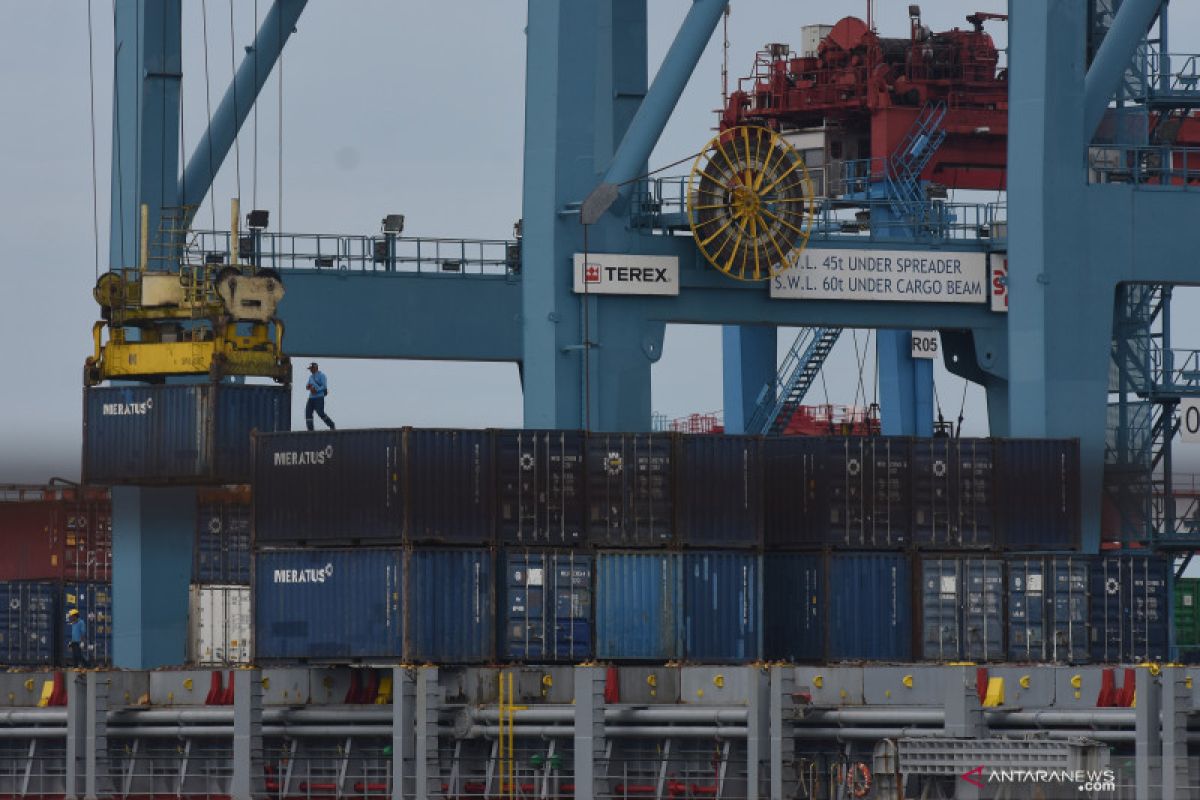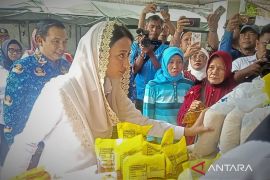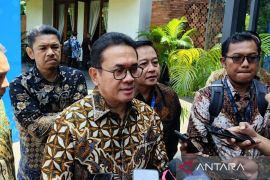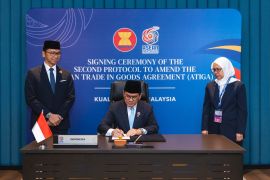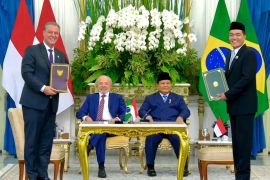Exports are one of the components of the Gross Domestic Product (GDP) that can promote national economic recoveryJakarta (ANTARA) - Trade Ministry designed five export-boosting strategies: maintaining export markets and main products, prioritizing export-oriented small and medium enterprises (SMEs), penetrating non-traditional markets, utilizing trade agreements, and conducting regulatory reforms, particularly the Job Creation Act's derivative.
"Exports are one of the components of the Gross Domestic Product (GDP) that can promote national economic recovery," Director General of National Export Development of the Trade Ministry, Kasan, noted in an official statement here on Thursday.
Kasan emphasized the need to maintain Indonesia's main products and export markets on account of their large contribution.
"The 10 main export destination countries have contributed 70 percent to Indonesia's total exports. Meanwhile, Indonesia's 10 main export products also accounted for 60 percent of Indonesia's total export products," he pointed out.
Kasan believes emerging markets will play an even greater role in future to penetrate non-traditional markets. Emerging market countries will contribute 71 percent to the world economy, and 51 percent of them will be in the Asian region.
"Apart from Asia, Africa is also a contributor to high-demand primary commodities. It means there will be competition among emerging market countries to obtain primary commodities from the Asian and African region as raw materials to be produced into finished goods," he remarked.
Moreover, market penetration through big cities in non-traditional export markets should also be accorded priority. In future, cities in emerging market countries have vast potential to continue to boost their national economies.
"Hence, capitalize on the trade agreements reached by Indonesia and big cities in the Asian and African regions that will have a huge contribution to the entry of products from other countries into Indonesia," Kasan remarked.
Meanwhile, Kasan noted that the ministry had in place a program to create 1,500 export-oriented small and medium enterprises (SMEs) in a bid to support them.
According to the ministry's data in 2020, Indonesian export-oriented SMEs had reached 83 percent, or some 12 thousand national exporters. However, four percent of the total export-oriented SMEs, are mostly located in Java Island.
"In the program to create 1,500 export-oriented SMEs, the targeted SMEs are those that already have a product but have not yet exported it and the new one that need to be continuously supported, as well as the SMEs that are developing products and export markets," Kasan pointed out.
Kasan called on trade representatives to adapt to the situation and trade policies in the accredited country.
"The trade representatives are expected to continue to conduct their duties abroad, though still having to adjust to their respective accreditation countries," Kasan affirmed.
Related news: Trade Ministry's strategy to develop national products is apposite
Related news: Trade Ministry supports export-oriented SMEs in global market
Close
EDITED BY INE
Translator: Katriana
Editor: Fardah Assegaf
Copyright © ANTARA 2021
